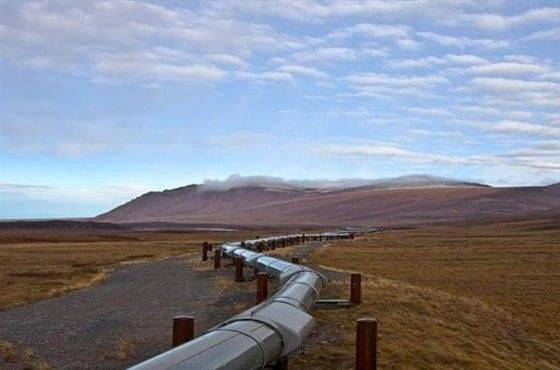Erbil, the regional capital of Iraqi Kurdistan, has all the trappings of an oil boomtown. It bristles with construction cranes. Land Cruisers and Range Rovers with tinted windows ply the busy streets. Oil workers and briefcase-bearing foreigners crowd into the Divan Erbil Hotel’s piano bar.
At the foot of the 8,000-year-old Citadel — which claims to be the oldest continuously inhabited town in the world — currency traders in the central market swap dollars, euros and Turkish liras for Iraqi dinars. Shoppers flock to Erbil’s Family Mall, which features stores such as French hypermarket Carrefour and Spanish clothing chain Mango.
With the opening of a new oil pipeline, the boom is getting a boost. Crude that used to be transported by truck across the rugged, mountainous terrain of the three northern provinces known as Iraqi Kurdistan began flowing in stages through the pipeline in January.
The conduit, built by the Kurdistan Regional Government, or KRG, runs about 250 miles from Khurmala, southwest of Erbil, to the Turkish border, where it connects with an existing link to the Mediterranean port of Ceyhan. Oil that sells for about $70 a barrel domestically could fetch $100 or so in world markets.
The KRG said in October that the average output would be 400,000 barrels a day in 2014 and could jump to 1 million barrels by 2015 and twice that much by 2019. For 5.2 million Kurds in an area roughly the size of Switzerland, the influx of foreign investment and rising oil-related income promises an improving standard of living as the rest of the country remains mired in sectarian violence.
Since the KRG began selling oil contracts to foreign investors in 2007, per capita gross domestic product in Kurdistan has soared; it hit $5,600 in 2012, up from $800 10 years ago. The boom has also benefited oil exploration companies, especially those that placed early bets.
The oil boom is transforming a part of Iraq that ethnic Kurds throughout the South Caucasus and Middle East consider their homeland. Unlike Kurdish enclaves in Iran, Turkey, Syria and Armenia, Iraqi Kurdistan is self-ruled, having gained autonomous status in a 1970 agreement with the central government in Baghdad.
Though it defers to the government on most external affairs such as treaties and membership in international organizations, the KRG has its own parliament, issues its own visas and has its own army, the Peshmerga — meaning “those who confront death” in Kurdish.
The new pipeline, fully in KRG territory, should make it easier for Kurdistan to overcome central government resistance and get its oil to market, says Gareth Stansfield, a senior associate at the Royal United Services Institute, a London-based research organization.
“If the Kurds are able to pump the amounts of oil they’re promising, then this is a fundamental geopolitical game changer,” Stansfield says. “It gives the Kurds economic independence from Baghdad.”
Oil is also helping to change the relationship between Turkey and Iraqi Kurdistan.
Bloomberg
17 June






















































